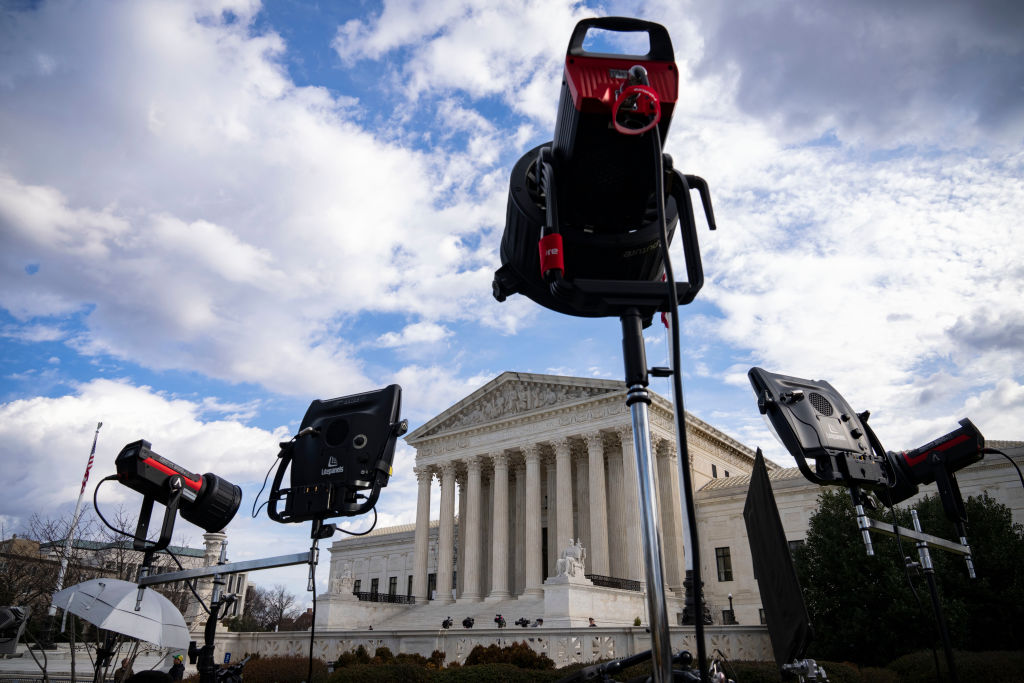Tech giants Twitter and Google are at the High Court this week in potentially huge free speech cases. The companies are attempting to avoid liability for the content they host and how it is displayed. First up was Gonzalez v. Google on Tuesday, Feb. 21. Lawyers want the company to pay up because an American was murdered in Paris by ISIS members, and YouTube hosts ISIS videos. Google, which owns the video platform, says it’s immune from the suit because of Section 230 protections, and the Justices’ tone and questions suggested they might agree. However, if the company loses the case, the internet must undergo massive change to comply, which some argue could stifle creativity.
Protected by Section 230, or Not?
It’s only natural for us to feel profound sympathy for the family of terrorism victims. That’s what lawyers for Nohemi Gonzalez’s family are banking on. Gonzalez, a college student from California, was killed by ISIS terrorists in Paris in 2015. Google had nothing to do with it, but the company’s huge pockets make them just as large a target from the plaintiff’s bar. The Gonzalez family’s theory of liability is that by hosting ISIS videos on its YouTube site and recommending other similar videos, YouTube is partially responsible for her murder.
Now the case does not concern whether Google is liable, but whether or not they have to fight that claim in the first place. The lower courts have ruled Google is covered by the blanket immunity from civil liability granted to internet service providers by section 230 of the Communications Decency Act. YouTube did not produce the videos, so how can the platform be responsible? It implemented an algorithm that automatically suggested other, similar videos viewers might enjoy. Gonzalez’s lawyers say the playlist recommendations takes YouTube out of section 230 protections. The Court took the case to resolve the following question:
“Does section 230(c)(1) immunize interactive computer services when they make targeted recommendations of information provided by another information content provider, or only limit the liability of interactive computer services when they engage in traditional editorial functions (such as deciding whether to display or withdraw) with regard to such information?”

(Photo by Drew Angerer/Getty Images)
Section 230(c)(1) says: “No provider or user of an interactive computer service shall be treated as the publisher or speaker of any information provided by another information content provider.” The Justices expressed frustration with Congress for leaving them with a hot mess. The 27-year-old law was enacted to protect computer hosts from liability for chat and forum posts that might be defamatory and to allow them to moderate content. Justice Elena Kagan said: “We’re in a predicament here, right, because this is a statute that was written at a different time when the Internet was completely different.” She also said, to much laughter in the room, “we’re a court. We really don’t know about these things. You know, these are not like the nine greatest experts on the internet.”
A URL Issue
Justice Sonia Sotomayor drilled down into what made YouTube liable outside of 230: thumbnails and interned addresses (URL’s). In arguing against Google, Eric Schnapper said that tech companies are only immune if they publish third-party content, like user-uploaded video. Then he claimed YouTube’s practice of assigning the videos a URL got them booted out of immunity protections:
Justice Sotomayor: “The URL tells you where to find it? It’s a computer language that tells you this is where this is located?”
Mr. Schnapper: “Yes, but it is information within the meaning of the statute. This is no different than an e-mail which writes it out for you.”
Lisa Blatt, arguing for Google, said the company and any search engine had to make choices. “They’ve got an undescribable amount of content, and it has to be based on something, whether it’s relevance to a user request, a search history.” She asked rhetorically if searches should return results from “you know, the 1300s, or do you want something that’s a little more recent?”
On Wednesday, February 22, in Twitter v. Taamneh the Court asks if companies can be held liable for aiding and abetting terrorists, even if their services were not used to commit a crime. The case is another driven by plaintiffs’ attorneys looking for a payday – this time over a 2017 ISIS attack in Istanbul, Turkey, that killed a Jordanian man. What did Twitter have to do with it? Nothing. But they, too, have deep pockets, so they are targets. The Court is expected to release decisions in these cases before they break for summer.
Do you have an opinion about this article? We’d love to hear it! If you send your comments to [email protected], we might even publish your edited remarks in our new feature, LN Readers Speak Out. Remember to include the URL of the article along with your name, city, and state.
Please respect our republishing guidelines. Republication permission does not equal site endorsement. Click here.

